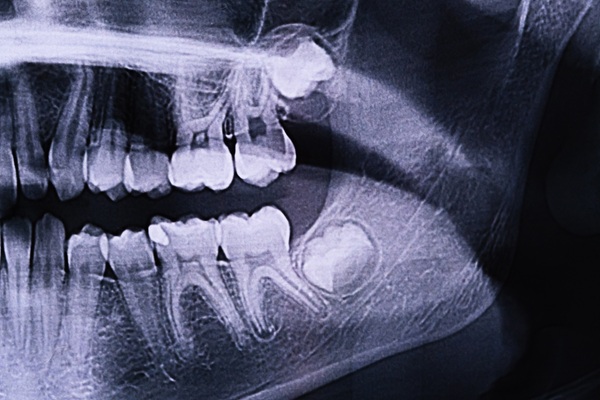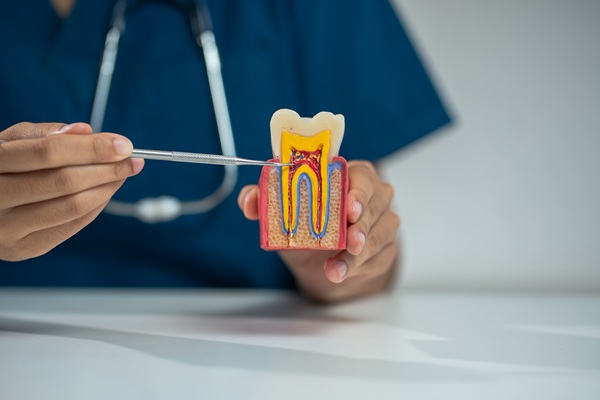We all yearn for a beautiful, flawless smile, but let’s face it – not everyone is blessed with one from the start. From chips, gaps, and misshapen teeth to minor misalignments, imperfections can make you feel less satisfied with your smile. However, here’s the good news – you don’t have to undergo extensive dental procedures to achieve that radiant smile you desire. Today, we’ll walk you through a game-changing solution: teeth veneers. We’ll unveil the transformative process of getting teeth veneers, ensuring you’re well-prepared before stepping into your dentist’s office. So, if you’re eager to unlock the secrets of enhancing your smile, keep reading.
How Do Teeth Veneers Work?
Teeth veneers work by covering the front surface of your teeth with ultra-thin shells, typically composed of porcelain or composite materials. These custom-made shells are precisely crafted to harmonise with your natural teeth in terms of shape, size, and colour. Once securely bonded in place, veneers help conceal imperfections such as stains, chips, gaps, and minor misalignments, resulting in a flawless and natural-looking smile. The process is minimally invasive, making it a widely used solution for enhancing your smile while preserving the integrity of your original tooth structure.
Types of Teeth Veneers
While there are two primary options when it comes to teeth veneers – porcelain veneers and composite veneers, each type offers distinct benefits and characteristics:
Porcelain Veneers
Porcelain veneers are known for their ability to deliver a stunning and enduring smile makeover. These veneers are crafted from ultra-thin shells of porcelain, which possess a remarkable resemblance to natural tooth enamel. Here’s a breakdown of what you can expect from porcelain veneers:
- They mimic the translucency and sheen of real teeth, making them virtually indistinguishable.
- Porcelain is highly resistant to staining, ensuring your smile remains radiant and unaffected by everyday food and beverage consumption.
- With proper care, porcelain veneers can last for a long time, providing a lasting solution for smile enhancement.
- Each porcelain veneer is custom-made to match the shape, size, and shade of your natural teeth, ensuring seamless integration with your existing smile.
- The application of porcelain veneers typically requires minimal removal of tooth enamel, preserving the structural integrity of your teeth.
Composite Veneers
Composite veneers offer a versatile and cost-effective alternative for improving your smile. These veneers are made from a tooth-coloured composite resin, and they come with their own set of advantages:
- Composite veneers are a faster option for smile enhancement.
- If a composite veneer becomes damaged or stained, it can be easily repaired or replaced by your dentist.
- Composite veneers tend to be more budget-friendly than their porcelain counterparts, making them an accessible choice for many individuals.
- Like porcelain veneers, composite veneers are customised to match your natural teeth, ensuring a harmonious blend with your smile.
- The application of composite veneers generally involves minimal alteration of tooth enamel, preserving your natural tooth structure.
Ultimately, the decision between porcelain and composite veneers depends on your personal smile goals. Consulting with your dentist can help determine the most suitable veneer option that aligns with your unique needs and lifestyle preferences.
The Process of Getting Teeth Veneers
The process of getting teeth veneers is pretty straightforward, often requiring just two visits to your dentist:
- Diagnosis
During this stage, your dentist thoroughly examines your smile, addressing any concerns or imperfections you wish to improve. They’ll engage in a comprehensive discussion to understand your specific smile goals and preferences. Based on their assessment and your input, your dentist will guide you in choosing the most suitable veneer type, whether porcelain or composite and provide insights into the expected results. A tailored treatment plan is then crafted to outline the necessary steps for your smile transformation.
- Preparation
In the preparation phase, your dentist gently reshapes the front surface of the teeth that will receive veneers by removing a minimal amount of enamel. This ensures there is enough space for the veneers to fit comfortably and securely. Impressions of your teeth are then taken to create custom veneers tailored to your unique specifications. Temporary veneers may be placed to protect your prepared teeth while the permanent ones are being crafted in the dental laboratory.
- Bonding
In the final stage, your dentist begins by fitting the custom veneers and making any necessary adjustments to achieve the desired shape and alignment. Your natural teeth are thoroughly cleaned and etched to create a strong bond for the veneers. Each veneer is individually bonded to your prepared teeth using a specialised adhesive. A curing light hardens the adhesive, firmly securing the veneers in place. Your dentist will then meticulously polish the veneers to ensure they blend seamlessly with your natural teeth.
In contrast to porcelain veneers, composite veneers can often be completed in just one visit. During this appointment, the dentist directly applies a tooth-coloured composite resin material to your teeth. They sculpt and shape the material to achieve your desired aesthetics, and it is then cured in place. Composite veneers offer a quick and cost-effective solution, but they may require more frequent adjustments and replacements compared to porcelain veneers.
While both options have their merits, porcelain veneers are typically recommended for their durability and long-lasting beauty.
Can Veneers Fix Crooked Teeth?
Veneers can enhance the appearance of slightly crooked teeth by masking minor misalignments, such as gaps or rotations. However, they do not provide orthodontic correction or move teeth. For more significant misalignments, orthodontic treatments like braces or clear aligners are generally recommended for better treatment outcomes. Consulting with a dental practitioner will help determine if veneers are a suitable cosmetic option for addressing your specific case of crooked teeth.
Read more here: Dental Veneers for Crooked Teeth: How They Can Improve Your Smile and Bite
Get Started on Your Journey to a Healthy & Pleasing Smile with Bellevue Hill Dental
At Bellevue Hill Dental, we’re dedicated to helping you achieve the smile you’ve always desired. Whether you’re considering teeth veneers to enhance your smile aesthetics or seeking general dentistry solutions to maintain the health of your teeth and gums, we’re here to provide personalised care and compassionate guidance every step of the way.
Schedule a consultation with us today to take the first step towards a lifetime of healthy and beautiful smiles.




